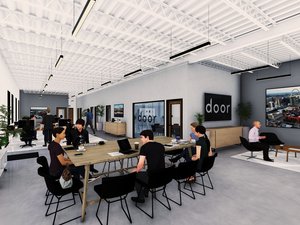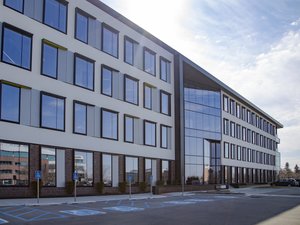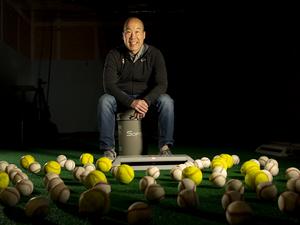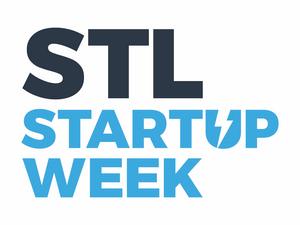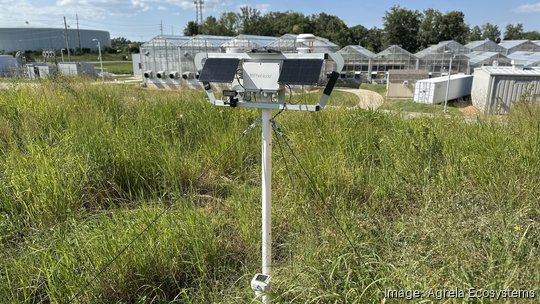
St. Louis startup Agrela Ecosystems, which has created a hardware system to collect environmental data, has begun commercializing its device after years of research and development.
The startup has started a pilot launch of its system with plans for full commercialization in 2025, if not sooner, said Agrela President Bill Kezele. Agrela, as part of its pilot launch, says it has signed on several customers and has started generating revenue.
Founded in 2016 by Donald Danforth Plant Science Center scientists, including Nadia Shakoor, Agrela has developed a hardware system, called PheNode, that it describes as an environmental sensor platform that can collect data relevant to its users. The PheNode was initially conceptualized for agriculture research, but its applicability has expanded to other industries, including geospatial research, sustainability and smart infrastructure. Kezele, Shakoor and Todd Mockler co-invented Agrela’s technology. Mockler, a Danforth Center scientist who died in January, also was a co-founder of St. Louis agtech firm Benson Hill (NYSE: BHIL).
Agrela said its PheNode system has several users, including the Danforth Center, St. Louis-based Taylor Geospatial Institute and Salk Institute for Biological Studies in San Diego. Agrela has also had three PheNode deployed in Georgia as part of The Ray, a smart highway project. The startup said it has generated $250,000 in revenue through sales of its PheNode system and services related to the device.
Kezele said Agrela aims for its pilot launch to give it a better understanding of how customers use PheNode and what changes or improvements could be made to its technology prior to its full commercial launch.
“Now that we have something out there representative of the work we’ve done, we’re looking for the kind of customer feedback we need to trim any fat that needs to be trimmed out of the system. (It is) how do we streamline it, how do we optimize it and how do we scale it,” Kezele said.
Kezele said Agrela initially funded development of PheNode through small grants and R&D contracts with early adopters of its technology. It received funding from Danforth Technology Co., which focuses on helping Danforth Center scientists commercialize their research and technology, and BioSTL’s BioGenerator to advance PheNode’s development for its pilot launch. Kezele said he expects Agrela to raise additional investment as it approaches its full commercial launch.
Agrela’s staff includes Kezele and Shakoor, with much of its design and engineering operations being done by contractors. The company will seek to bring engineering operations in house and all of its manufacturing to the U.S. as it expands and brings in additional funding, Kezele said.
With its technology nearly a decade in the works, Kezele said it feels a “little surreal” to have it reach its pilot launch.
“We’re still learning a lot. It’s nice to get to the point to which we actually have something to offer and get strong feedback from users. That will help us move forward,” he said.
